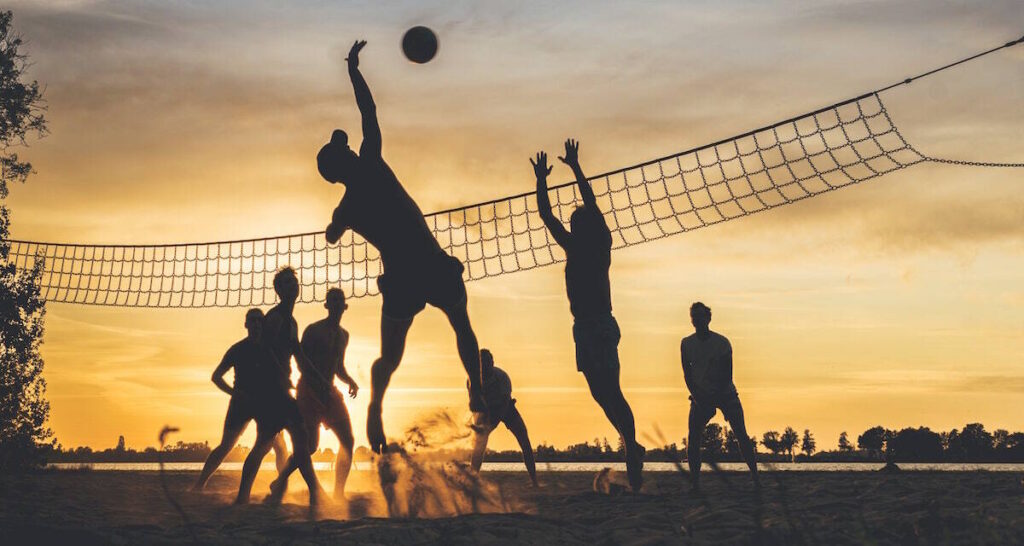Cell phones (aka smartphones, mobile devices, etc.) have made our lives easier. They not only connect us instantaneously to friends, family, loved ones, and anyone else that we need to be in constant contact with, they have opened up new worlds of opportunity. They permit us to work remotely and collaborate on projects with individuals and groups from anywhere on the planet. They allows us to launch entrepreneurial enterprises. They provide us with hours of entertainment and permit us to track our own health and wellness. It’s the latter we want to draw attention to.
Despite certain enhancements in quality-of-life offered by the smartphone, there are risks to our wellbeing, namely in our overuse of them. In a recent survey, nearly half of American respondents admitted to having a smartphone addiction, as they see it. This number will likely grow, as data finds that almost two-thirds of children spend four hours or more per day on their devices.
Of course, it’s important to note that the phrase “smartphone addiction” is really the public’s semantic take on a behavioral concern. Addiction classifications are far more complex. At present, smartphone overuse is not clinically a diagnosable disorder. That said, experts consider overuse to be problematic:
“Although excessive use of smartphones is not currently recognized as a formal clinical disorder in the Diagnostic and Statistical Manual of Mental Disorders (DSM-5) or International Classification of Diseases (ICD-10), many aspects of the behavior appear to share similarities with other recognized behavioral addictions.“
“Whilst there remains debate on the status of this phenomenon as a diagnosable mental health condition; there is a need for prevention and intervention approaches that encourage individuals to have more control over their digital usage.”
Science Direct
American Psychiatric Association (APA) disorder classifications and calls for further research aside, we want to answer the concerns that YOU have. Thousands of people in America per month are online and searching for “cell phone addiction treatment”. That’s who we’re here for.
Our counselors use evidence-based treatment approaches to manage a range of behavioral issues. We’re known for our treatment of problematic online gambling, gaming, and trading. Interestingly, it’s one (or more) of these behavioral concerns that could be the issue (for you or a loved one) and not a perceived smartphone addiction. A smartphone may simply be the vessel that enables someone with an online gambling, gaming, or trading problem. As a result, treatment may be misdirected. Learn more about how perceived smartphone addiction treatment could be misguided. With that out of the way, we now return to the heading of this article that made you curious in the first place – the application of sports as a moderator.
In addition to providing an online counseling platform for the general public, we provide treatment programs regarding behavioral health disorders in amateur, collegiate, and professional athletes. Our recent partnership with the NFLPA’s Professional Athletes Foundation is a testament to this. Furthermore, it has given us insight into the many ways sports can have a positive impact on mental health. While we do recommend that you find out (take one of these tests) if a perceived mobile device addiction is connected to smartphone activities such as gambling or gaming, we encourage you to consider increasing physical activity as an intervention. Data seems to agree.
How Physical Activity is Another Important Step Towards Addressing Problematic Cell Phone Use

Research has shown that excessive smartphone use before “game day” can have an detrimental impact on athletic performance. Thankfully, the reverse appears to be true too. Studies find that sports can be an effective moderator against perceived smartphone addiction, especially in teens and post-secondary students alike.
“The results extend the literature on smartphone addiction by introducing physical activity as a preventive factor and will be useful for policymakers and parents to understand the importance of developing and promoting physical activity among young adults.”
Science Direct
At a collegiate level, in instances where problematic smartphone use impacted academic performance, athletics have shown to mitigate the impact.
Logically, the “go outside and play” intervention will keep someone from their phone for the duration of the activity, but does it stop there? Won’t the attempt to put one’s smartphone away be a struggle when not preoccupied by the swing of a bat or spike of a ball? One meta-analysis finds that chronic exercise engagement is associated not just with less smartphone usage, but with fewer withdrawal and mood-related symptoms.
While further studies are required to discern how effective physical activity can be as a form of cell phone overuse treatment, it certainly doesn’t hurt to go outside and play more, no matter your age. Ultimately, involvement in organized and/or recreational exercise is beneficial to ones’ overall health and wellbeing.

